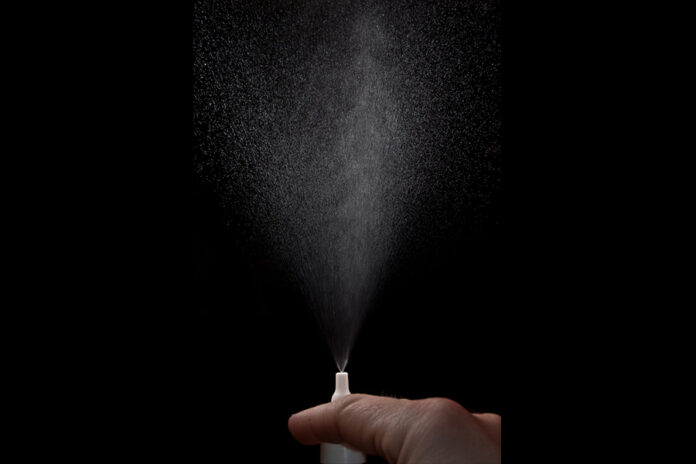The FDA approves new nasal spray for depression, despite failing efficacy standards
The FDA recently approved a new drug called Esketamine, a nasal spray for severe, treatment-resistant depression. My gut reaction to Esketamine was disturbed. Two of three of the drug’s trials did not meet the FDA’s normal efficacy standards, which means the results of the studies were inconclusive. The FDA has allowed Esketamine to go into production, under the brand name Spravato, despite there being such little proof — less than is normally required of other drugs on the market — of it actually helping patients.
As someone with treatment resistant depression, I do not think sloppy science is the best way to help me and others like me. Esketamine could help a lot of severely depressed people, especially the suicidal, and improve the quality of, if not save, countless lives — except we don’t know enough about the drug, and that giant could is an enormously risky gamble with people’s brains. It’s a cost/benefit analysis that doesn’t pan out in the drug’s favor.
Esketamine is based on Ketamine, an injectable, general anesthetic, also known as a psychedelic commonly used as a recreational hallucinogenic. One reason to be highly Esketamine-wary is that it carries with it a high potential for abuse and addiction. The FDA assures us that the drug will only be available through a “restricted distribution system,” as if classifying and monitoring opioids as a highly controlled substance has prevented millions of people from getting addicted. Seeing as how we can’t say whether or not Esketamine even works, gambling with addiction and the possible adverse long-term side effects we know nothing about on a federally regulatory level is practically criminal. Addiction ruins the lives of addicts and hurts everyone around them, and mass producing another highly addictive substance under the pretense that we can control it, when controlling what has come before it has utterly failed, is just plain arrogant and stupid.
Here’s an anecdote regarding long-term side effects and the fallibility of medical practitioners. In the 1950s, doctors gave my grandma, my mom’s mom, a drug while she was pregnant that was supposed to ensure her ability to carry my mom to term. It was the latest, greatest thing. What no one knew were the long term implications of the drug; it would have a colossal reproductive fallout in the female children of the pregnant women. As a result, my brother and I were both born three months early after my mom’s nearly unbearable pregnancies that involved many emergency room trips and blood transfusions. The vast majority of the readership of this paper probably can’t conceptualize an infant minus an entire third trimester. I’ve seen the pictures. It’s horrifying. Google it and then imagine the grey and white matter detrimental equivalent.
Esketamine is the the latest, greatest thing. The newest fad. Like dosing an entire generation of small children with a tidal wave of ADHD meds and then a decade later going, “Oops! Perhaps we were a little trigger happy with the pills.” Psychiatry takes a deft hand, good intuition and patience. Wellbutrin, which has worked wonders for me and many people I know, can take up to six months to manifest full therapeutic effect when first beginning treatment. That is a God-awful wait if you are mired in the soul suffering of severe depression. But if the drug is the right fit for you, the payoff is more than worth it.
I often joke that psychiatry is less like science and more like voodoo. The infinite number of combinations and doses are mind-boggling, and just because you’ve got a hit on a seemingly magic cocktail one month doesn’t mean it’s going to work the next. I’m pretty sure my psychiatrist is a neurochemical artist-alchemist-sorcerer. Dangling untested drugs even hinted at as the miraculous in front of depressed and desperate people, many of whom spend all day wanting to die, is irresponsible and dangerous to a degree that makes me angry. Maybe Esketamine will save countless lives, but maybe it won’t. We simply do not know. To posture otherwise is getting all “Jurassic Park” or something (except with brains). We all saw how that ended — five times. #Chaos #JeffGoldblum #MorbidArbitraryDinosaurBasedHumorMakesMeFeelBetterAboutTheProspectOfLotsOfLivesBeingMessedUp
Put the drug through the proper paces. What happens, for example, when someone has been receiving treatment for years and then stops suddenly because their insurance no longer covers it? Is it safe for pregnant women? Is it safe for the developing brain (which doesn’t stop until 25, ahem, undergrad population)? Esketamine still carries a risk of dissociation, albeit “less” than Ketamine, so how much of a risk of dissociation are we willing to accept in the course of treatment? Dissociation, in my experience, is profoundly unpleasant. I got bronchitis recently, had an allergic reaction and ended up in the ER experiencing a very specific form of dissociation rarely associated with cough suppressant. I don’t have nearly ample the word count to articulate the psychological trauma of that experience. You want to potentially put suicidal people through that?
Add moving forward in such ignorance, plus the risk for abuse and the possibility of inducing psychosis in the severely depressed all together and the FDA folks seem kind of… sick. Stop messing with our brains. We appreciate what you are trying to do, but be mature about it and take the time and effort to do right by the scientific method. Please.
Written by: Lauren Frausto — lrfrausto@ucdavis.edu
Disclaimer: The views and opinions expressed by individual columnists belong to the columnists alone and do not necessarily indicate the views and opinions held by The California Aggie.




